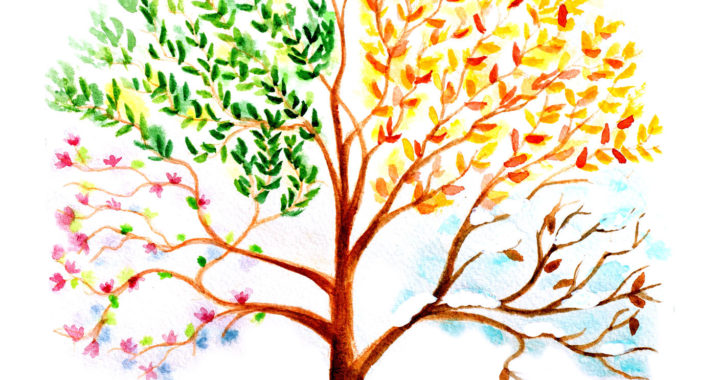By Jane Amsden, LCSWR, Mental Health Clinic Director at CoveCare Center
When the summer comes to a close, most of us are eager for a respite from the heat, humidity, and non-stop air conditioning. But at the same time, we realize that this means darkness is encroaching. No more outings after dinner, still in time to buy ice cream and watch the sun set. Many of us will soon be driving both to and from work in the dark, and spending most of our time indoors.
Although we know the sun will return, many people suffer from stress and depression throughout the fall and winter seasons. Now known as Seasonal Affective Disorder, SAD is a subtype of Major Depression, a serious emotional disorder that is linked to a specific time of year. The American Academy of Family Physicians estimates that 5% of Americans suffer from SAD each year; it is more common in the North, and is diagnosed more often in women than men. People who experience SAD often report noticing that while they were emotionally stable in the summer, their mood begins to decline in the fall, and they find they may experience a full recurrence of major depressive symptoms in the winter, such as difficulty sleeping or sleeping too much, appetite changes, loss of energy, difficulty concentrating, and loss of interest in friends, family and social activities.
As SAD is linked to the season, there are several specific steps that can be taken to alleviate its symptoms. One is to get more light! As the hours of daily sun wanes, our circadian rhythms and melatonin and serotonin levels are affected, all of which help regulate sleep. Poor sleep aggravates depression. Under a doctor’s care, melatonin and antidepressants that target the brain chemical serotonin may help. Also, Vitamin D and sunshine work together, so check with a doctor about increasing your vitamin intake and getting some sun. If spending more time outside is not an option, special lamps can be purchased that help to mimic the effects of outdoor light. Also, being mindful of what you eat and avoiding alcohol are key to avoid adding stress and discomfort to an already painful situation. And finally, while it may be difficult, reaching out and staying connected with friends and family will help to alleviate feelings of loneliness and sadness.
If you feel you may experience SAD, there is help. Call CoveCare Center at (845) 225-2700. For help 24 hours a day, call the Putnam County Crisis line at 845-225-1222. If you know someone is in immediate danger, call 911.
